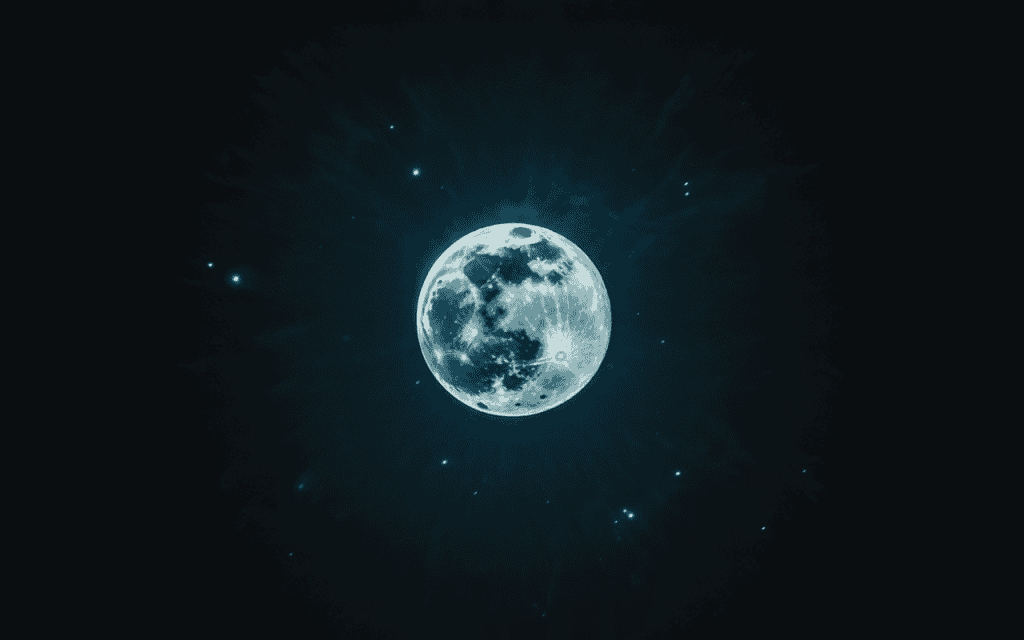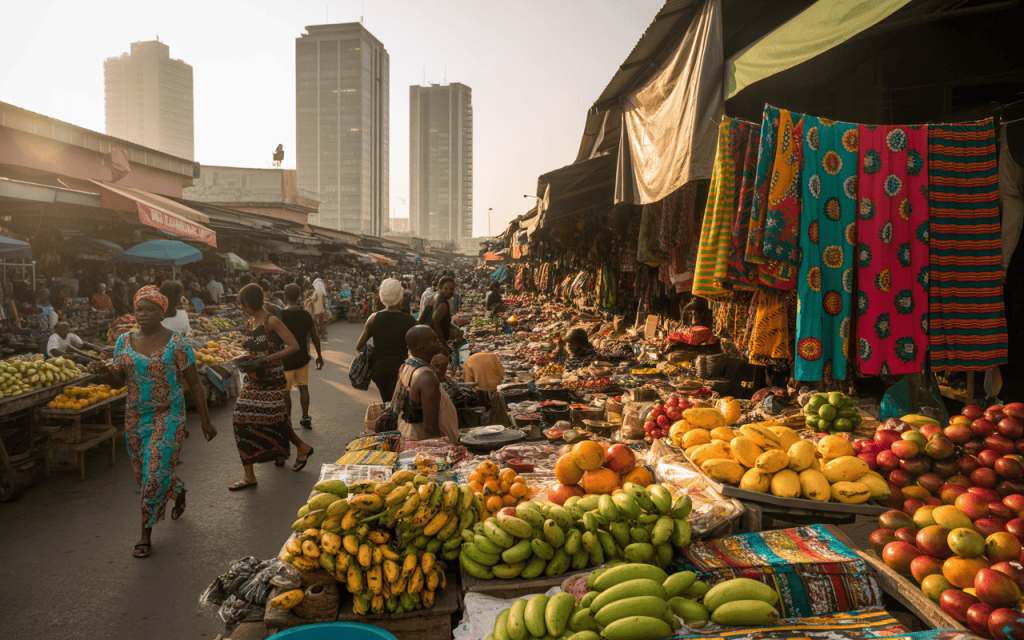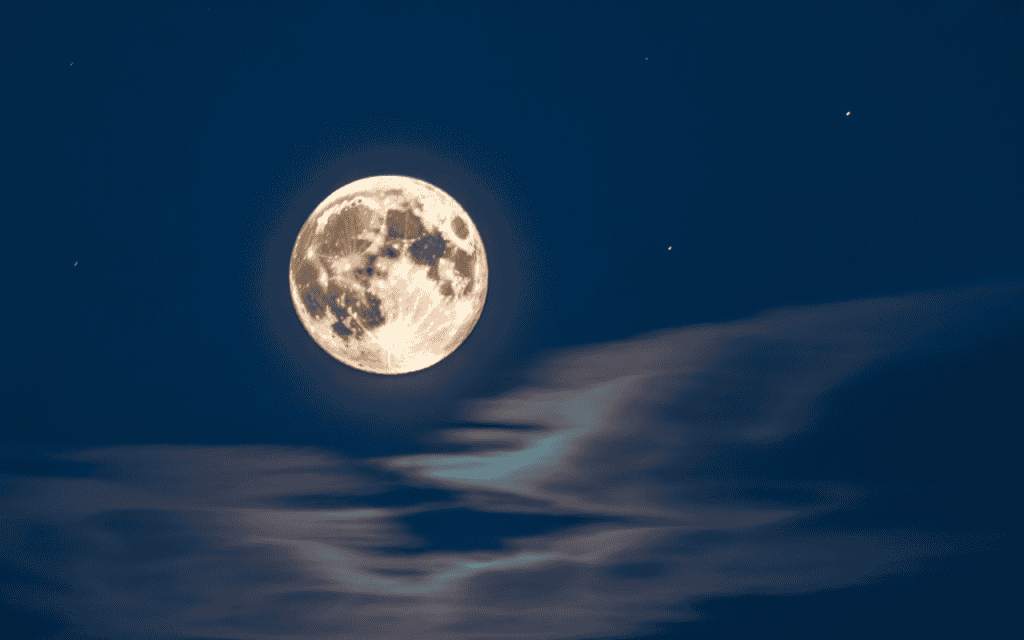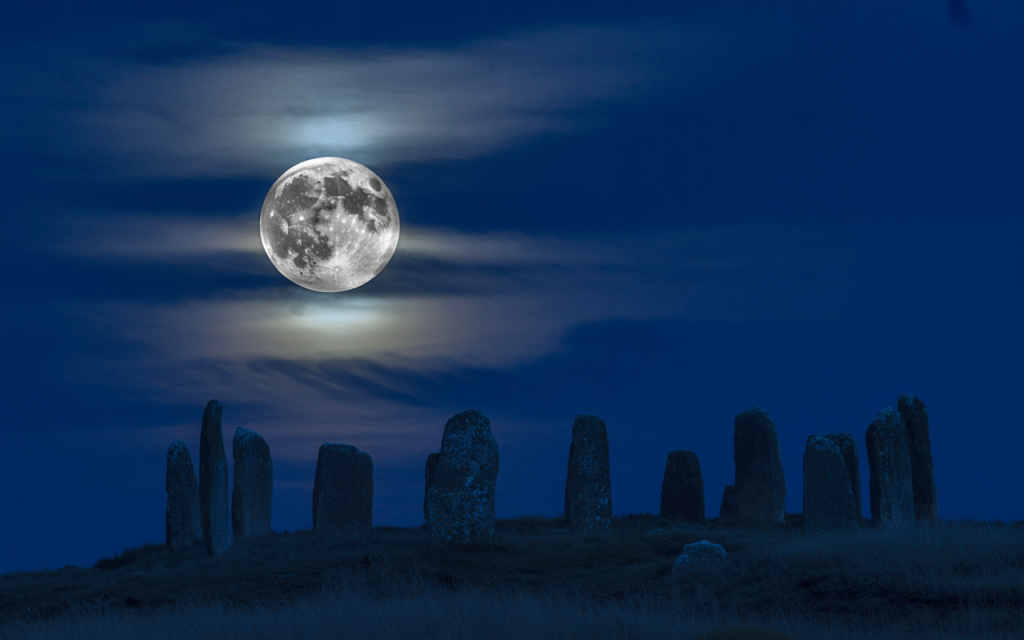The moon has captivated humanity since the dawn of civilization, serving as a universal symbol that transcends cultural boundaries. Are you curious about how to say Moon in different languages? Let’s dive in!
Yet each language captures its celestial essence uniquely, reflecting diverse mythologies, etymologies, and cultural perspectives.
Learning how to say moon around the world provides fascinating insights into linguistic evolution, ancient beliefs, and the shared human experience of gazing up at our nearest celestial neighbor.
From the Latin-derived “luna” to the poetic “gealach” of Irish Gaelic, each moon translation carries centuries of cultural meaning and astronomical observation.
Why “Moon” Captivates Every Language

The word “moon” represents one of humanity’s oldest vocabulary, with moon word etymology tracing back to ancient civilizations that depended on lunar cycles for agriculture, navigation, and timekeeping.
Ancient cultures developed rich lunar terminology worldwide, often connecting the moon to deities, fertility, time measurement, and mystical powers.
These cultural meanings of moon in languages continue to influence how we express this celestial concept today.
The international word for moon varies dramatically across language families, yet the underlying reverence and fascination remain constant throughout human cultures.
Moon in European Languages

Western European Languages
English: Moon (pronounced moon)
French: Lune (pronounced loon)
German: Mond (pronounced mohnt)
Spanish: Luna (pronounced LOO-nah)
Italian: Luna (pronounced LOO-nah)
Portuguese: Lua (pronounced LOO-ah)
Dutch: Maan (pronounced mahn)
Catalan: Lluna (pronounced YOO-nah)
Northern European Languages
Swedish: Måne (pronounced MAW-neh)
Danish: Måne (pronounced MAW-neh)
Norwegian: Måne (pronounced MAW-neh)
Finnish: Kuu (pronounced koo)
Icelandic: Tungl (pronounced TOONG-l)
Eastern European Languages
Russian: Луна (Luna, pronounced LOO-nah)
Polish: Księżyc (pronounced KSHEH-zhits)
Czech: Měsíc (pronounced MEH-sheets)
Hungarian: Hold (pronounced hohld)
Slovak: Mesiac (pronounced MEH-see-ahts)
Ukrainian: Місяць (Misyats’, pronounced MEE-syahts)
Bulgarian: Луна (Luna, pronounced LOO-nah)
Serbian: Месец (Mesec, pronounced MEH-sets)
Celtic Languages
Irish Gaelic: Gealach (pronounced GYAL-akh)
Scottish Gaelic: Gealach (pronounced GYAL-akh)
Welsh: Lleuad (pronounced HLAY-ahd)
Other European Languages
Basque: Ilargia (pronounced ee-LAR-gee-ah)
Maltese: Għammar (pronounced AH-mar)
Albanian: Hënë (pronounced HUH-nuh)
Moon in Asian Languages

East Asian Languages
Chinese (Simplified): 月亮 (Yuèliàng, pronounced yway-lee-ahng)
Chinese (Traditional): 月亮 (Yuèliàng, pronounced yway-lee-ahng)
Japanese: 月 (Tsuki, pronounced tsoo-kee)
Korean: 달 (Dal, pronounced dahl)
South Asian Languages
Hindi: चंद्रमा (Chandramā, pronounced chuhn-druh-maa)
Bengali: চাঁদ (Chāṃd, pronounced chahnd)
Tamil: சந்திரன் (Cantiraṉ, pronounced sahn-thee-rahn)
Urdu: چاند (Chānd, pronounced chahnd)
Punjabi: ਚੰਦ (Cand, pronounced chahnd)
Telugu: చంద్రుడు (Candruḍu, pronounced chuhn-droo-doo)
Gujarati: ચંદ્ર (Candra, pronounced chuhn-druh)
Kannada: ಚಂದ್ರ (Candra, pronounced chuhn-druh)
Southeast Asian Languages
Thai: ดวงจันทร์ (Duang-jan, pronounced dooh-ahng-jahn)
Vietnamese: Mặt trăng (pronounced maht trahng)
Indonesian: Bulan (pronounced BOO-lahn)
Malay: Bulan (pronounced BOO-lahn)
Khmer (Cambodian): ព្រះចន្ទ (Preah chan, pronounced preh-ah jahn)
Burmese (Myanmar): လ (La, pronounced lah)
Central Asian Languages
Kazakh: Ай (Ay, pronounced eye)
Uzbek: Oy (pronounced ohy)
Turkmen: Aý (pronounced eye)
Tajik: Моҳ (Moh, pronounced mohh)
Moon in Middle Eastern Languages

Arabic: قمر (Qamar, pronounced kah-mar)
Hebrew: ירח (Yareach, pronounced yah-REH-akh)
Persian (Farsi): ماه (Māh, pronounced mahh)
Turkish: Ay (pronounced eye)
Kurdish (Sorani): مانگ (Mang, pronounced mahng)
Moon in African Languages

Swahili: Mwezi (pronounced MWEH-zee)
Zulu: Inyanga (pronounced een-YAHN-gah)
Afrikaans: Maan (pronounced mahn)
Amharic: ወር (War, pronounced wahr)
Yoruba: Òṣùpá (pronounced oh-SHOO-pah)
Igbo: Ọnwa (pronounced ohn-wah)
Hausa: Wata (pronounced wah-TAH)
Somali: Dayax (pronounced DAH-yakhs)
Moon in Austronesian Languages

Filipino (Tagalog): Buwan (pronounced BOO-wahn)
Cebuano: Bulan (pronounced BOO-lahn)
Maori: Marama (pronounced mah-RAH-mah)
Hawaiian: Mahina (pronounced mah-HEE-nah)
Javanese: Rembulan (pronounced rem-BOO-lahn)
Malagasy: Volana (pronounced voh-LAH-nah)
Moon in Indigenous Languages

Native American Languages
Quechua: Killa (pronounced KEE-yah) Navajo: Tł’éhonaa’éí (pronounced tleh-hoh-nah-eh-ee)
Australian Aboriginal Languages
Pitjantjatjara: Kilu (pronounced KEE-loo)
More Translations of MOON in Various Languages

Amharic (Ethiopia): ወር (War, pronounced wahr)
Georgian: მთვარე (Mt’vare, pronounced mt-VAH-reh)
Mongolian: Сар (Sar, pronounced sahr)
Nepali: चन्द्रमा (Chandramā, pronounced chuhn-druh-mah)
Sinhala (Sri Lanka): සඳ (Sanda, pronounced sahn-DAH)
Estonian: Kuu (pronounced koo)
Latvian: Mēness (pronounced MEH-ness)
Lithuanian: Mėnulis (pronounced meh-NOO-lees)
Macedonian: Месечина (Mesečina, pronounced meh-SEH-chee-nah)
Armenian: Լուսին (Lusin, pronounced loo-SEEN)
Bosnian: Mjesec (pronounced MYEH-sets)
Croatian: Mjesec (pronounced MYEH-sets)
Slovenian: Luna (pronounced LOO-nah)
Romanian: Lună (pronounced LOO-nuh)
Galician: Lúa (pronounced LOO-ah)
Asturian: Lluna (pronounced YOO-nah)
Sardinian: Luna (pronounced LOO-nah)
Corsican: Luna (pronounced LOO-nah)
Sicilian: Luna (pronounced LOO-nah)
Luxembourgish: Mound (pronounced moond)
Esperanto: Luno (pronounced LOO-noh)
Tibetan: ཟླ་བ (Dawa, pronounced dah-WAH)
Azerbaijani: Ay (pronounced eye)
Kyrgyz: Ай (Ay, pronounced eye)
Tatar: Ай (Ay, pronounced eye)
Pashto: سپوږمۍ (Spoṣmai, pronounced spohzh-MY)
Marathi: चंद्र (Chandra, pronounced chuhn-druh)
Bashkir: Ай (Ay, pronounced eye)
Shona: Mwedzi (pronounced MWEH-dzee)
Chichewa: Mwezi (pronounced MWEH-zee)
Twi (Akan): Ɔsrane (pronounced oh-SRAH-neh)
Ewe (Ghana/Togo): Ɣleti (pronounced gleh-TEE)
Bambara (Mali): Kalo (pronounced KAH-loh)
Fulfulde: Lewru (pronounced LEW-roo)
Wolof: Weer (pronounced wehr)
Mossi (Burkina Faso): Kiesgo (pronounced kee-EHS-goh)
Tswana: Ngwedi (pronounced ngweh-DEE)
Venda: Nwedzi (pronounced nweh-DZEE)
Ga (Ghana): Ɔsram (pronounced oh-SRAHM)
Aymara: Phaxsi (pronounced PAHKH-see)
Cantonese: 月光 (Jyut gwong, pronounced yoot gwohng)
Haitian Creole: Lalin (pronounced lah-LEEN)
Kikuyu: Mweri (pronounced MWEH-ree)
Ojibwe: Giizis (pronounced GEE-zees)
Xhosa: Inyanga (pronounced een-YAHN-gah)
Chechen: Буьт (But, pronounced boot)
Fijian: Vula (pronounced VOO-lah)
Kinyarwanda: Ukwezi (pronounced oo-KWEH-zee)
Kurdish (Kurmanji): Heyv (pronounced hayv)
Cherokee: ᏅᏓ (Nvda, pronounced noo-DAH)
Chuvash: Уйăх (Uyăkh, pronounced oo-YAHKH)
Dholuo (Kenya): Dwe (pronounced dweh)
Fon (Benin): Osupa (pronounced oh-SOO-pah)
Tzotzil (Mexico): U (pronounced oo)
Dari (Afghanistan): ماه (Māh, pronounced mahh)
Inuit (Inuktitut): Taqtu (pronounced tahk-TOO)
Tongan: Māhina (pronounced mah-HEE-nah)
Samoan: Māsina (pronounced mah-SEE-nah)
Greenlandic: Qaammat (pronounced kahm-MAHT)
Sundanese (Indonesia): Bulan (pronounced BOO-lahn)
Balinese: Bulan (pronounced BOO-lahn)
Lao: ເດືອນ (Dɯan, pronounced duu-ahn)
Uyghur: ئاي (Ay, pronounced eye)
Oriya (Odia): ଚନ୍ଦ୍ର (Chandra, pronounced chuhn-druh)
Assamese: চন্দ্ৰ (Chandra, pronounced chuhn-druh)
Manipuri: থা (Tha, pronounced thah)
Konkani: चंद्र (Chandra, pronounced chuhn-druh)
Sindhi: چنڊ (Chanda, pronounced chuhn-DAH)
Kashmiri: چاند (Chānd, pronounced chahnd)
Maithili: चान (Chān, pronounced chahn)
Santali: চান্দো (Chāndo, pronounced chahn-DOH)
Dogri: चन्न (Chann, pronounced chahn)
Bodo: दावाय (Dāwāy, pronounced dah-WAY)
Mizo: Thla (pronounced thlah)
Khasi: Bnai (pronounced b-NYE)
Garo: Dakasim (pronounced dah-kah-SEEM)
Tripuri: Khorang (pronounced khoh-RAHNG)
Nagamese: Chand (pronounced chahnd)
Okinawan: チチ (Chichi, pronounced chee-chee)
Ryukyuan: 月 (Chichi, pronounced chee-chee)
Ainu: チュプ (Chup, pronounced choop)
Manx: Eayst (pronounced eysht)
Cornish: Loor (pronounced lohr)
Breton: Loar (pronounced loh-AHR)
Faroese: Máni (pronounced MAH-nee)
Sami (Northern): Mánnu (pronounced MAHN-noo)
Komi: Тӧлысь (Tölys’, pronounced toh-LUHSH)
Udmurt: Толэзь (Tolez’, pronounced toh-LEHZH)
Mari: Тылзе (Tylze, pronounced TUHL-zeh)
Moksha: Ков (Kov, pronounced kohv)
Erzya: Ков (Kov, pronounced kohv)
Karelian: Kuu (pronounced koo)
Veps: Ku (pronounced koo)
Livonian: Kū (pronounced koo)
Võro: Kuu (pronounced koo)
Karaim: Ay (pronounced eye)
Gagauz: Ay (pronounced eye)
Crimean Tatar: Ay (pronounced eye)
Nogai: Ай (Ay, pronounced eye)
Kumyk: Ай (Ay, pronounced eye)
Karachay-Balkar: Ай (Ay, pronounced eye)
Kabardian: Мазэ (Maze, pronounced mah-ZEH)
Adyghe: Мазэ (Maze, pronounced mah-ZEH)
Abkhaz: Амза (Amza, pronounced ahm-ZAH)
Ossetian: Мӕй (Mäy, pronounced may)
Lezgian: Варз (Varz, pronounced vahrz)
Dargin: Варс (Vars, pronounced vahrs)
Avar: Моц (Mots, pronounced mohts)
Tabasaran: Варз (Varz, pronounced vahrz)
Lak: Барз (Barz, pronounced bahrz)
Hindustani: चाँद / چاند (Chānd, pronounced chahnd)
Malay (Jawi): بولن (Bulan, pronounced BOO-lahn)
Acehnese: Buleuën (pronounced boo-leh-UHN)
Minangkabau: Bulan (pronounced BOO-lahn)
Batak: Bulan (pronounced BOO-lahn)
Toraja: Bulan (pronounced BOO-lahn)
Bugis: Bulang (pronounced BOO-lahng)
Makassarese: Bulang (pronounced BOO-lahng)
Gorontalo: Bula (pronounced BOO-lah)
Minahasa: Bulan (pronounced BOO-lahn)
Chamorro: Pilan (pronounced pee-LAHN)
Carolinian: Pwul (pronounced pool)
Chuukese: Raan (pronounced rahn)
Marshallese: Aelōn̄ (pronounced ah-eh-loan)
Palauan: Ius (pronounced ee-OOS)
Yapese: Malith (pronounced mah-LEETH)
Kosraean: Malem (pronounced mah-LEHM)
Pohnpeian: Maram (pronounced mah-RAHM)
Kiribati: Aram (pronounced ah-RAHM)
Tuvaluan: Masina (pronounced mah-SEE-nah)
Niuean: Mahina (pronounced mah-HEE-nah)
Cook Islands Maori: Marama (pronounced mah-RAH-mah)
Tahitian: Marama (pronounced mah-RAH-mah)
Marquesan: Maama (pronounced mah-AH-mah)
Rapa Nui: Marama (pronounced mah-RAH-mah)
Pitcairn: Muun (pronounced moon)
Norfolk: Muun (pronounced moon)
Bislama: Mun (pronounced moon)
Tok Pisin: Mun (pronounced moon)
Hiri Motu: Hina (pronounced HEE-nah)
Yolŋu: Ngalindi (pronounced ngah-LEEN-dee)
Warlpiri: Jukurrpa (pronounced joo-koor-PAH)
Arrernte: Artwe (pronounced ahrt-WEH)
Pintupi: Kintala (pronounced keen-tah-LAH)
Tiwi: Japarra (pronounced jah-pahr-RAH)
Yiriman: Jangka (pronounced jahng-KAH)
Murrinh-Patha: Murrinh (pronounced moor-REEN)
Kunwinjku: Kunbarlanja (pronounced koon-bahr-lahn-JAH)
Kriol: Mun (pronounced moon)
Torres Strait Creole: Mun (pronounced moon)
Tetum: Fulan (pronounced foo-LAHN)
Dili Tetum: Fulan (pronounced foo-LAHN)
Makhuwa: Mweri (pronounced MWEH-ree)
Sena: Mwezi (pronounced MWEH-zee)
Ndau: Mwedzi (pronounced MWEH-dzee)
Tsonga: N’weti (pronounced n-WEH-tee)
Chewa: Mwezi (pronounced MWEH-zee)
Ndebele: Inyanga (pronounced een-YAHN-gah)
Bemba: Mwezi (pronounced MWEH-zee)
Luba: Ngonda (pronounced ngohn-DAH)
Lingala: Sanza (pronounced sahn-ZAH)
Kongo: Ngonda (pronounced ngohn-DAH)
Luo: Dwe (pronounced dweh)
Kamba: Mweri (pronounced MWEH-ree)
Kikongo: Ngonda (pronounced ngohn-GAH)
Luganda: Omwezi (pronounced oh-MWEH-zee)
Runyankole: Okwezi (pronounced oh-KWEH-zee)
Kinyarwanda: Ukwezi (pronounced oo-KWEH-zee)
Kirundi: Ukwezi (pronounced oo-KWEH-zee)
Maasai: Oladalu (pronounced oh-lah-DAH-loo)
Turkana: Ekaru (pronounced eh-KAH-roo)
Pokot: Arawon (pronounced ah-rah-WOHN)
Kalenjin: Arawon (pronounced ah-rah-WOHN)
Nandi: Arawon (pronounced ah-rah-WOHN)
Luhya: Omweri (pronounced ohm-WEH-ree)
Meru: Kieri (pronounced kee-EH-ree)
Embu: Mweri (pronounced MWEH-ree)
Taita: Mweri (pronounced MWEH-ree)
Mijikenda: Mweri (pronounced MWEH-ree)
Borana: Ji’a (pronounced jee-AH)
Rendille: Agh (pronounced ahgh)
Somali: Dayax (pronounced DAH-yakhs)
Oromo: Ji’a (pronounced jee-AH)
Sidamo: Agena (pronounced ah-GEH-nah)
Gedeo: Bira (pronounced BEE-rah)
Hadiyya: Lalla (pronounced lahl-LAH)
Konso: Lalla (pronounced lahl-LAH)
Dinka: Akol (pronounced ah-KOHL)
Nuer: Koel (pronounced koh-EHL)
Shilluk: Kuel (pronounced koo-EHL)
Nuba: Kalo (pronounced KAH-loh)
Beja: Abarai (pronounced ah-bah-RYE)
Nubian: Ager (pronounced ah-GEHR)
Fur: Kalo (pronounced KAH-loh)
Zaghawa: Kolo (pronounced KOH-loh)
Kanuri: Kalo (pronounced KAH-loh)
Tubu: Kalo (pronounced KAH-loh)
Sara: Kalo (pronounced KAH-loh)
Bagirmi: Kalo (pronounced KAH-loh)
Mbaka: Kalo (pronounced KAH-loh)
Banda: Kalo (pronounced KAH-loh)
Gbaya: Kalo (pronounced KAH-loh)
Sango: Kalo (pronounced KAH-loh)
Zande: Kalo (pronounced KAH-loh)
Acholi: Dwe (pronounced dweh)
Lango: Dwe (pronounced dweh)
Alur: Dwe (pronounced dweh)
Karamojong: Ekaru (pronounced eh-KAH-roo)
Teso: Ekaru (pronounced eh-KAH-roo)
Sebei: Arawon (pronounced ah-rah-WOHN)
Lugbara: Kalo (pronounced KAH-loh)
Madi: Kalo (pronounced KAH-loh)
Kakwa: Kalo (pronounced KAH-loh)
Keliko: Kalo (pronounced KAH-loh)
Bari: Kalo (pronounced KAH-loh)
Mundari: Kalo (pronounced KAH-loh)
Pojulu: Kalo (pronounced KAH-loh)
Kuku: Kalo (pronounced KAH-loh)
Nyangwara: Kalo (pronounced KAH-loh)
Avokaya: Kalo (pronounced KAH-loh)
Logo: Kalo (pronounced KAH-loh)
Ma’di: Kalo (pronounced KAH-loh)
Moru: Kalo (pronounced KAH-loh)
Miza: Kalo (pronounced KAH-loh)
Kaba: Kalo (pronounced KAH-loh)
Lendu: Kalo (pronounced KAH-loh)
Hema: Kalo (pronounced KAH-loh)
Etymology and Root Words of Moon Translations

The moon origins in world languages reveal fascinating linguistic patterns and cultural connections:
Luna Family: Latin “luna” spawned Romance language variations (Spanish luna, Italian luna, French lune, Portuguese lua), all sharing the root meaning “light” or “shining one.”
Germanic Roots: English “moon,” German “Mond,” and related terms derive from Proto-Germanic “*mēnōn,” connected to measurement and monthly cycles.
Slavic Variations: Russian “луна” (luna) and Polish “księżyc” show the dual influence of Latin borrowing and native Slavic lunar terminology.
Asian Symbolism: Chinese “月亮” (yuèliàng) literally means “moon brightness,” while Japanese “月” (tsuki) connects to time and cyclical concepts.
Semitic Heritage: Arabic “قمر” (qamar) and Hebrew “ירח” (yareach) both relate to cyclical illumination and divine creation.
Cultural Insights and Moon Language Variations

Moon language variations reflect diverse cultural perspectives on this celestial body:
Timekeeping Connection: Many cultures use their moon word etymology to describe months, calendars, and seasonal cycles. The name for moon by country often doubles as their word for “month.”
Mythological Significance: Lunar words in global languages frequently connect to deities, femininity, romance, and mystical powers across different cultures.
Poetic Traditions: Languages like Persian, Arabic, and Chinese have extensive poetic vocabularies describing different moon phases, appearances, and symbolic meanings.
Gender Associations: Some cultures assign masculine properties to the moon (German “der Mond”), while others consider it feminine (Spanish “la luna”), reflecting deep cultural attitudes toward celestial bodies.
Regional Dialects and Pronunciation Guide

Understanding how to pronounce moon in different languages requires attention to:
Tonal Languages: Chinese, Thai, and Vietnamese use specific tones that can change meaning entirely.
Consonant Clusters: Polish “księżyc” and other Slavic languages feature complex consonant combinations.
Vowel Sounds: Germanic languages often use sounds not found in English
Stress Patterns: Romance languages typically stress different syllables than English speakers expect
Tips for proper pronunciation:
- Listen to native speakers using language apps.
- Practice tonal variations in Asian languages.
- Pay attention to rolled R’s in Romance languages.
- Master nasal sounds in languages like French and Portuguese.
Moon Synonyms and Cultural Expressions
Many languages feature multiple terms for moon depending on context:
Sanskrit Influence: Hindi uses both “चाँद” (chānd) for casual reference and “चंद्रमा” (chandramā) for formal or poetic contexts
Phase-Specific Terms: Arabic has dozens of words describing different lunar phases and appearances
Slang Variations: Modern languages develop informal moon terms, especially in urban contexts and youth culture
Regional Preferences: The same language may prefer different moon words in various geographic regions
Moon in Popular Culture and Literature

The universal fascination with lunar terminology worldwide appears across global arts:
Literary Traditions: From Chinese poetry celebrating “月亮” (yuèliàng) to Germanic folklore featuring “Mond,” the moon inspires creative expression worldwide
Musical Heritage: Songs featuring moon words exist in virtually every language, often focusing on romance, longing, and natural beauty
Modern Media: Contemporary films, books, and digital content continue using traditional and modern moon terminology
Symbolic Usage: Advertising, branding, and artistic expression frequently incorporate culturally specific moon words for emotional impact
Multilingual Moon Translation Tips
For travelers and language learners seeking effective moon phrase localization:
Context Sensitivity: Understand when to use formal versus casual moon terms.
Cultural Awareness: Recognize religious or mythological associations in different cultures.
Pronunciation Practice: Focus on sounds that don’t exist in your native language.
Visual Recognition: Learn to identify moon words in different writing systems.
Regional Variations: Be aware that the same language may have different preferred terms
Final Thoughts
Exploring moon translations across world languages reveals the profound connection between human cultures and our celestial companion.
Each translation carries unique emotional weight, historical significance, and cultural meaning that extends far beyond simple vocabulary.
Whether you’re using these translations for travel, education, cross-cultural communication, or pure curiosity, understanding the etymology of moon words and their cultural contexts enhances your appreciation for linguistic diversity and the shared human experience.
From the scientific precision of modern astronomy to the poetic beauty of ancient mythologies, these lunar words connect us to millennia of human observation, wonder, and artistic expression.
The moon may be the same celestial body worldwide, but its linguistic expressions reveal the beautiful diversity of human perception, creativity, and cultural meaning-making across our global community.
Source: Ethnologue Language Database






